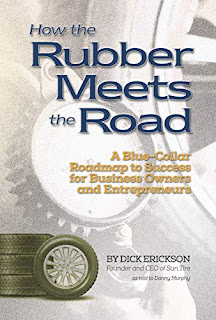Anyone who is
reasonably literate can crank out a 5,000 to 10,000 word ebook and put it out
on Kindle or elsewhere. However, most writers who want to produce good books
know that they are going to need some help. They may need a copy editor, a cover
artist, a book designer, or some other specialist. They may also need an editor
or ghostwriter to keep moving forward with the project.
When to consider
hiring a ghostwriter.
You realize that you
don’t have a clue on how to write a book.
You don’t have time to
learn how to write a book.
You know that you will
never get it done without help.
You have the resources
to hire some help.
What to look for in a
ghostwriter.
Experience. Hire a person who has
actually ghost-written several books, or at least a few. Ghost-writing is more
difficult than many other forms of writing. An experienced ghost-writer will
know how to keep the project moving forward at a good pace. An inexperienced
person may be an excellent writer, but may not be familiar at all with
collaborating on a large project.
Skills. Naturally, you will
want someone who writes well. Take a good look at some of the writer’s work. If
you don’t like it very much, look for someone whose writing you do like. Journalistic
skills also come into play. A writer who can figure out the right questions to
ask will keep your project moving forward. If you want to include photos in
your book, hiring a person who knows how to take and edit pictures can help.
Compatibility. You and your
ghost-writer will be spending considerable time together. Look for someone you
get along with, someone with similar values and temperament.
Someone who can write
in your voice. The
final product should be in the voice of the author, not the ghostwriter. If the
author doesn’t use lots of big words, the book should reflect that. If the
author has an extensive vocabulary, that should be in the book. Toward the end
of work on the second edition of How the Rubber Meets the Road by Dick
Erickson, we engaged the services of an excellent copy-editor, Doug Filaroski.
After he edited the book, he and I and Dick met for lunch. Doug hadn’t met Dick
previously. Halfway through the lunch Doug told me, “You really got Dick’s
voice right.” It was great to hear because ghostwriting is about getting the
author’s voice right.
My process for
ghostwriting.
My process involves
weekly meetings with the client. I spend an hour or more preparing for the
meetings, figuring out what we can accomplish in the sessions, and coming up
with questions that will keep the discussion moving forward. Those meetings can
be in person or by Zoom, and they can run from 30 minutes to 2 hours. I record
the meetings with Otter.ai so I can get a transcript later. I also take notes
of highlights that I want to get back to.
The transcripts can
run from 10,000 to 20,000 words, much of it gibberish. The software isn’t
perfect, but it’s AI, so it’s getting better all the time. Shortly after a
meeting, either that afternoon or early the next day, I review the transcript
looking to dig out as much useable material as I can. By staying as close as
possible to what the client said, the client’s own voice emerges.
I revisit whatever
parts of the manuscript are already in place and figure out where to plug in
the new material. When I feel like I’ve got a chapter or topic far enough along
for the client to review, I’ll send it by email, load it on Dropbox, or deliver
it in whatever way is convenient for the client.
A few days prior to an
upcoming meeting, I will send a reminder to the client. Usually, I will have a
few questions that need to be addressed. Facts might need to be verified, or I
might want more information about something we’ve discussed. Also, I ask the
client what he or she wants to cover in the next session. If the client has
something on his or her mind, I certainly want to get into that. As a writer
and as a ghost-writer, I believe in going where the energy leads. Then I start
planning for the session, writing out the questions, etc.
Getting a ghost-writer
doesn’t mean there won’t be much work for the client. In fact, I think a good
ghostwriter will push a client to do the necessary work on his or her end. Shortly
after a session, I usually have something for the client to review, questions
to be answered, or information that the client needs to dig up. There’s some
coaching involved.
“I only
write when inspiration strikes. Fortunately, it strikes at 9:00 a.m. every morning.”
This quote has been attributed to William Faulkner, Somerset Maugham, and
several others.













